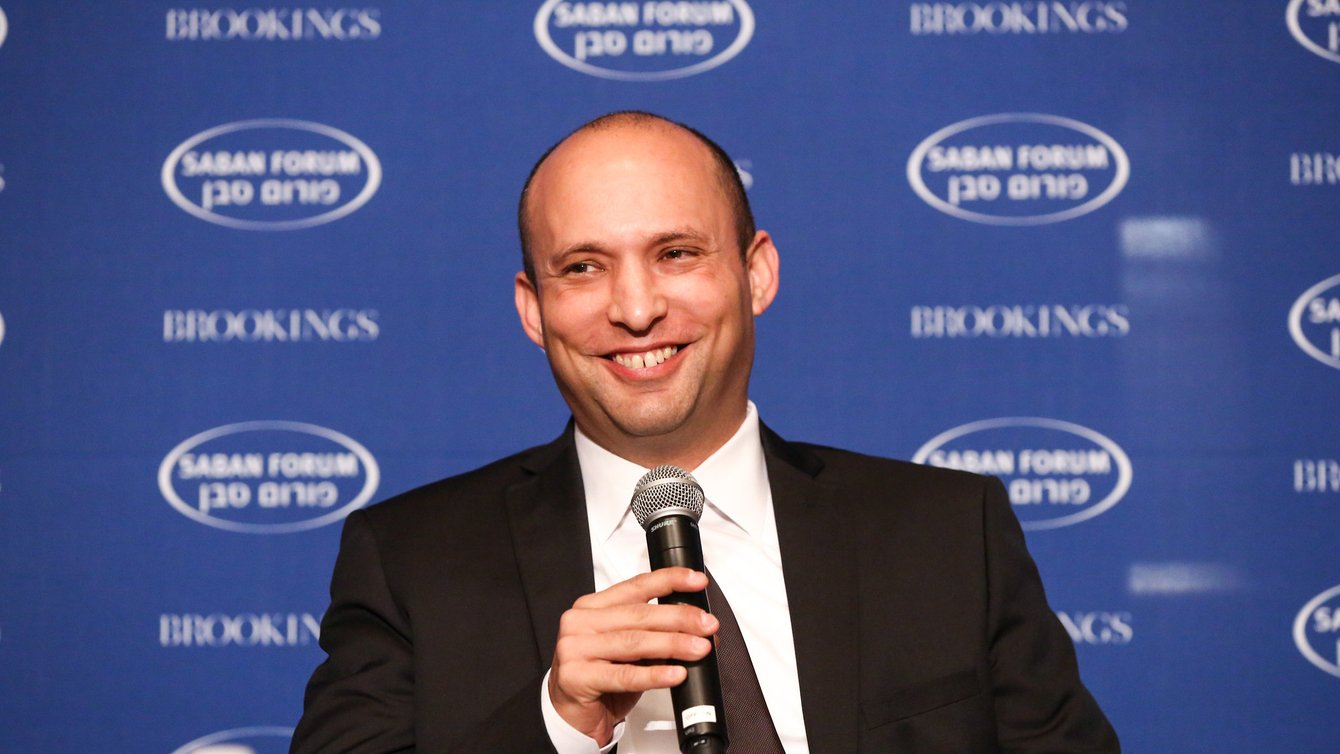As the conflict over the East Jerusalem neighborhood of Sheikh Jarrah escalated into a massive Israeli military action against Gaza this May, the role of the Settler Movement and the Israeli Far Right became a primary topic of conversation worldwide. Israel’s rightward moves since 1967, epitomized by the rise and radicalization of its ruling Likud party, have both mirrored and helped spur a global shift away from the center and to the Right. That much is evident in the U.S. as well, but the unique dynamics of the occupation of the West Bank, the political and territorial erasure of Palestinians, and the conflicted history of Zionism renders Israeli right-wing politics both unique and unstable.
Scholar of the Far Right Cas Mudde addresses these issues in his two most recent books, The Far Right Today (2019) and The Israeli Settler Movement (2020), which he co-authored with Israeli political scientist Sivan Hirsch-Hoefler. From different vantage points, Mudde analyzes the dynamics of Israeli politics that have led to both success and failure of the various right-wing strands of Zionism, and have created a toxic storm that is only increasing hostility against both Palestinian Israelis and Palestinians living under occupation.
As the assault on Gaza continued and Generically used to describe factions of right-wing politics that are outside of and often critical of traditional conservatism. Learn more bands of settlers attacked Palestinian neighborhoods on both sides of the green line—the border between Israel and the Occupied Territories of the West Bank—Mudde spoke with PRA about his research and perspective on the Far Right’s role in the current conflict and how we can understand it from a global perspective.
PRA: How does May’s conflict—emerging from what conservative Israelis describe as a “real estate dispute”—relate to the Israeli Far Right?
Cas Mudde: In a way, these incidents go to the crux of the conflict between Israel and Palestinians about Jerusalem, particularly East Jerusalem, and predate the importance of the Far Right. But I think where you do see the effect, and where this conflict stands out from previous ones, is the conflict within Israel proper, where we have seen an unprecedented level of violence between Jewish and Arab Israelis. These have looked almost like pogroms from Jews, including settlers, against Arab Israelis, as well as Arabs rioting in cities like Haifa that were traditionally seen as more harmonious. And I think that the Far Right plays a major role in this.
First of all, they played a role by aggressively pursuing the occupation of Jerusalem and the West Bank where, for at least 10 to 15 years, there has been no reasonable hope for peace. The other thing is kind of ironic, because Arab Israelis are becoming more and more integrated, more visible and powerful, to a certain extent. But at the same time, and undoubtedly related to that, the Israeli Far Right has stepped up its attempts to marginalize Arab Israelis, through attacks and the racist discourses of [former Prime Minister Benjamin] Netanyahu during elections. And also through laws, such as the “Basic Law” that states that Israel is the “nation state of the Jewish people,” which was passed in 2018. Imagine being an Arab Israeli in a country where you are increasingly playing by the rules and are subscribing to a lot of what it stands for and then having this kind of understanding that this is an exclusively Jewish state codified through law. Arguing against the Jewish character of the State of Israel is now illegal and can have massive consequences, and a lot of that came from laws passed in the last few years because of far-right support.
In The Far Right Today, you designate some segments of the Settler Movement, specifically followers of the late Rabbi Meir Kahane, as fascists, because of their reliance on violence. How do you differentiate between them and other elements of the Far Right?
There are a few distinctions. One is between extreme Right and radical Right: those that are against democracy per se—that is, against popular sovereignty and majority rule—and those that support democracy but are against minority rights and rule of law. That distinction is relevant in Israel as well. But what is relevant for Israel is also the distinction between the religious and the A neutral term used to describe someone or something, such as in law, as non-religious in character. Learn more Far Right. Yisrael Beiteinu and Likud are secular radical Right parties, while many parties we consider to be Far Right, such as Yamina and the New Right, are religious.
The boundaries between what was the mainstream Right and what was the Far Right have completely blurred in Israel.
Kahanism is a combination of religion and extreme Right. And in that sense, they are not strictly fascists because they are a theocratic movement. They want a non-democratic Israeli state based on halakha [Jewish law]. So it’s more similar to the most extreme version of The contemporary idea that America was founded as—and was intended by God to be—a Christian nation. Learn more in the U.S., where you want a U.S. based on the Bible—the Bible above the Constitution and democracy. Where it stands out, though, is that in the end, Kahanism believes in violence. It believes in advancing its political cause by using violence. And it believes in using violence to cleanse Israel, and many Kahanists have been involved in the Jewish Underground, one of the terrorist organizations of the more recent past, and the massive violence that comes in particular from these types of settlers. So it’s a unique form. On the one hand it has a lot of elements of A form of far-right populist ultra-nationalism that celebrates the nation or the race as transcending all other loyalties. Learn more , such as being openly anti-democratic and believing in violence. On the other hand, it is also deeply religious.
How does the Israeli Far Right relate to the global rise of the Far Right, both in terms of the Settler and Kahanist movements as well as parties like Likud?
Israel was one of the first countries to have successful [contemporary] far-right parties. What sets Israel apart is just how continuous their representation has been. In Israel, the Far Right has been represented in Parliament since 1984. Only the Netherlands was earlier, in 1982. So, whereas the contemporary Far Right is very much seen as something that happened in the 21st Century, the Far Right in Israel dates back to the early ‘80s. The fourth wave of the Far Right that I distinguish is characterized by heterogeneity, and Israel’s Far Right has that to a tee. You have a religious and a secular [Right], and you have an extreme Right and a radical Right. You have ten far-right parties in the Knesset since 1984. Now there’s a lot of overlap, but it shows how fluid it is, which is also very characteristic of the Far Right today.
I think in terms of electoral success the Israeli Far Right isn’t much more successful than the average in the EU. In the EU, [far-right parties were] about 7.5 percent [of the electorate], and in Israel it is about 10 percent, if we exclude Likud. And there comes the issue. Mainstreaming and normalization are the key characteristics of the fourth wave of the Far Right and you see both very strongly in Israel. There is a mainstreaming because of the radicalization of mostly Likud, but also Shas [a far-right religious party], the consequence of which is that the boundaries between what was the mainstream Right and what was the Far Right have completely blurred in Israel. Which is something you have seen across the globe. And don’t forget that Likud wanted Eretz Yisrael [often described as all land in both Palestine and Israel] since its foundation. It’s just that Netanyahu, for a long period, was a more moderating voice in terms of policy. He was kind of a Ronald Reagan type in the sense that he talked a big game but when push came to shove he generally didn’t do very risky things. That has very much changed, and it has changed under the influence of the Far Right.
Then there is the normalization. Only 40 percent of Israeli youth know that Israel has not declared sovereignty over Judea and Samaria, as the Jewish Right calls the occupied territories of the West Bank. The rest think that these are part of the State of Israel. This is the consequence of normalization. Ariel, a large settlement, has a university that is a part of the university system of Israel, despite being in the occupied West Bank.
Finally, I think radicalization is a piece. In the fourth wave, we see the mainstreaming of the radical Right, but also a further radicalization of the radical Right, where it starts to flirt with violence or extremism. Think Bolsonaro or Trump. In Israel you see that too, [where, until this June] Netanyahu [was] working together with the Kahanists. Remember, Kach [Meir Kahane’s political party] whose ban was upheld by the Israeli supreme court. But now people who openly stand in the tradition of this banned party are also embraced, for opportunistic reasons, by the prime minister.
What do you think is moving Israeli politics to the Right: conditions in the country, or ideologically-motivated groups?
Almost 10 years ago, my friend Ami Pedahzur wrote a book called The Triumph of Israel’s Radical Right. In that book he made the argument that Kahanism is the dominant ideology in the broad Israeli Far Right (excluding Likud). And I thought that was too far. But you now find Kahanism within the Settler Movement and closely related, the National Religious camp [Zionists with religious motivations]. Not necessarily all settlers, but in the leadership. Ironically, it is now also emerging within the Orthodox religious camp, which was not traditionally uniformly Zionist.
So there are two reasons for the shift. One is a global one: the shift from socio-economic to socio-cultural issues, partly because of the lack of ideology and partly because of the failures of The economic, social, and political position that centers individual freedom, undergirded by a weak government and unfettered, free-market capitalism. Learn more that make it attractive to talk about cultural issues. The second is the regional development when the Oslo Accords went nowhere and the two-state solution has been dead for at least a decade. You also saw the Arab Spring and the implosion or fragmentation of relatively stable regimes and states like Syria that in name were hostile to Israel but actually had longstanding deals with it. So, in that world where everything is uncertain, unclear and unsafe, the Right generally has the better papers on security issues. People look for security, look for protection, and the Far Right is seen as competent even though today shows that this competency is very debatable.
Cas Mudde is a professor in the School of Public and International Affairs at the University of Georgia and at the Center for Research on Extremism at the University of Oslo (Norway). His recent books include (with Cristóbal Rovira Kaltwasser) Populism: A Very Short Introduction, The Far Right Today, and (with Sivan Hirsch-Hoefler) The Israeli Settler Movement: Assessing and Explaining Social Movement Success. Dr. Mudde is also host of the podcast RADIKAAL, which focuses on the radical aspects of music, politics, and sports.

